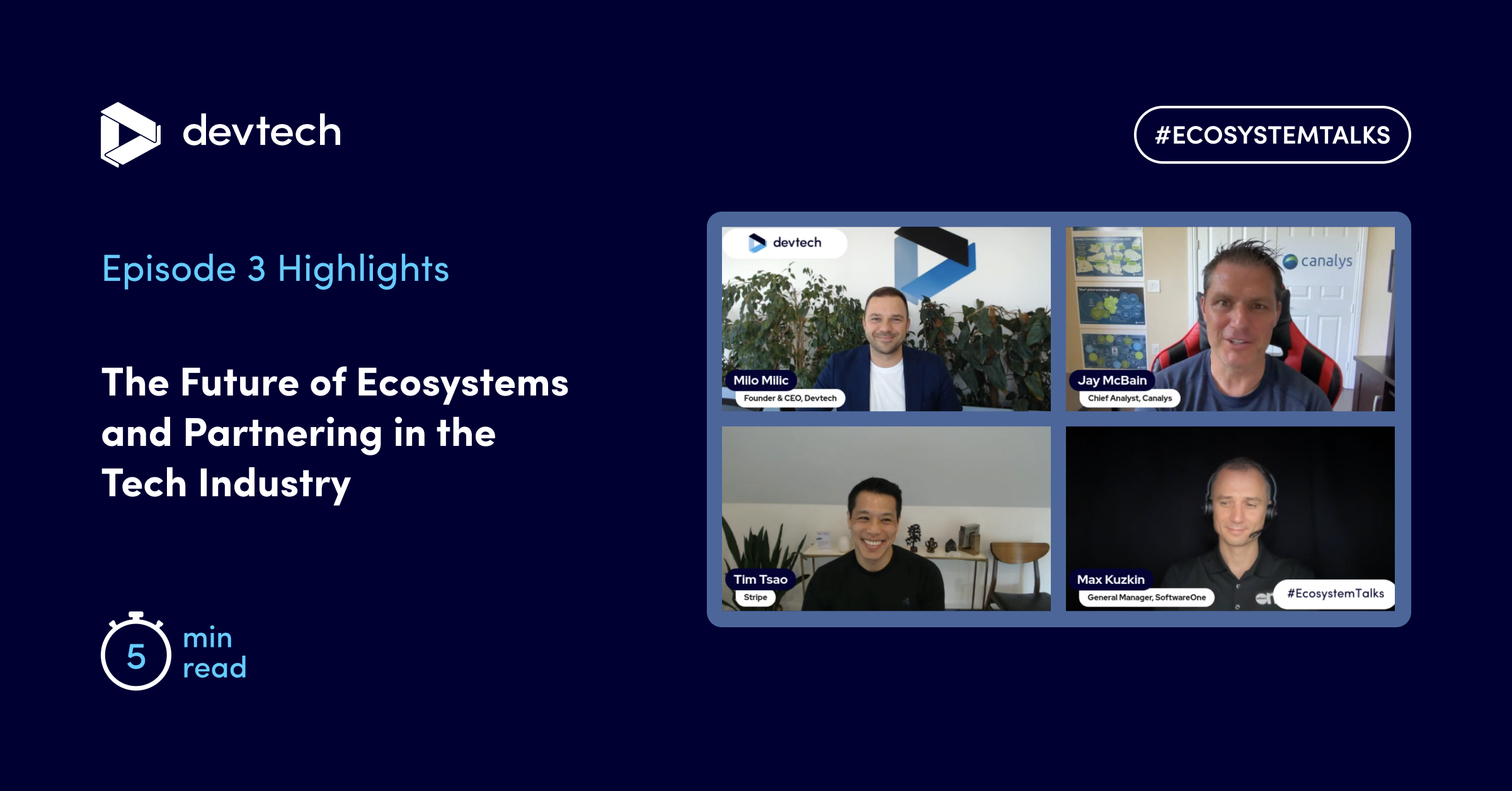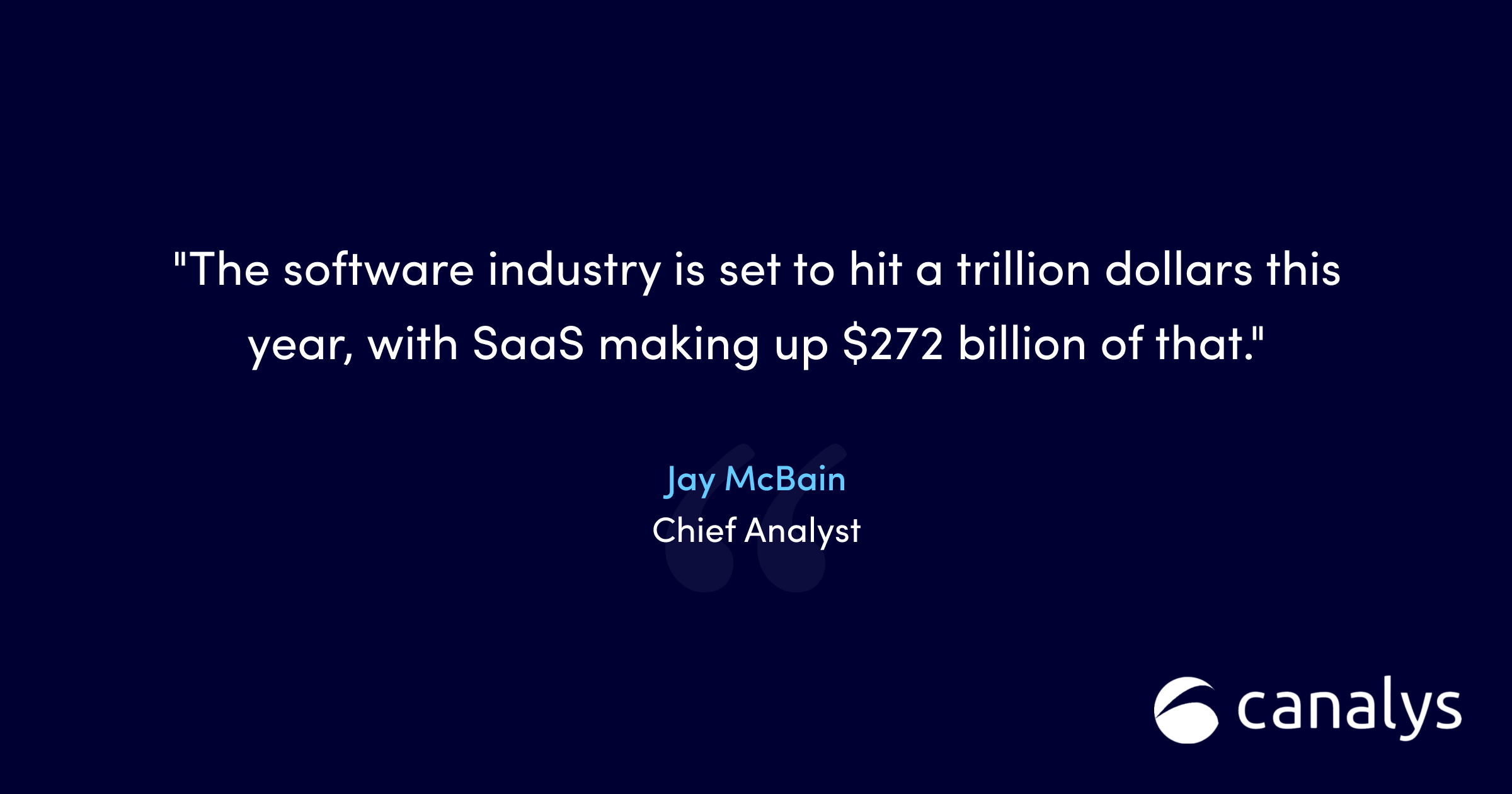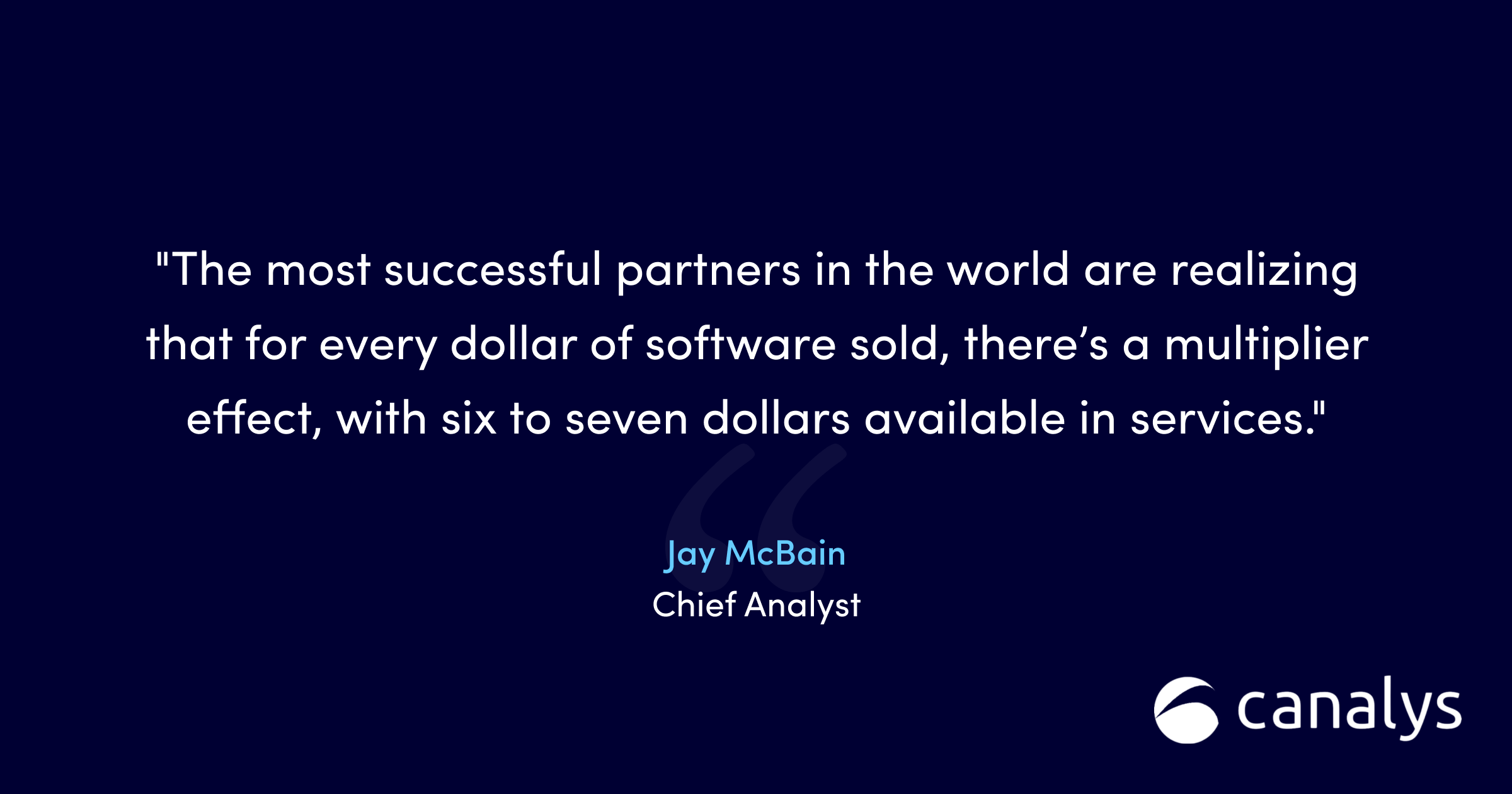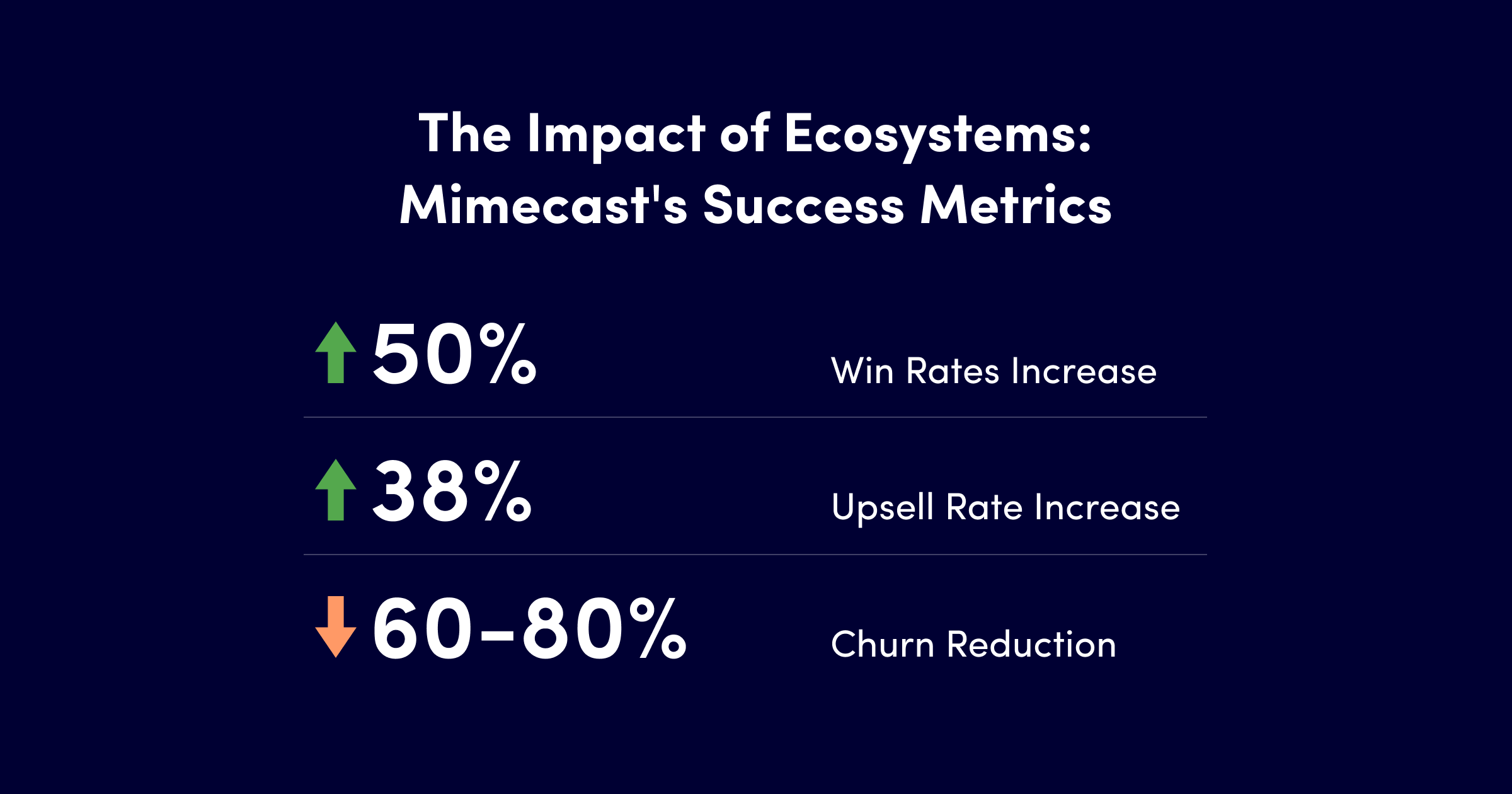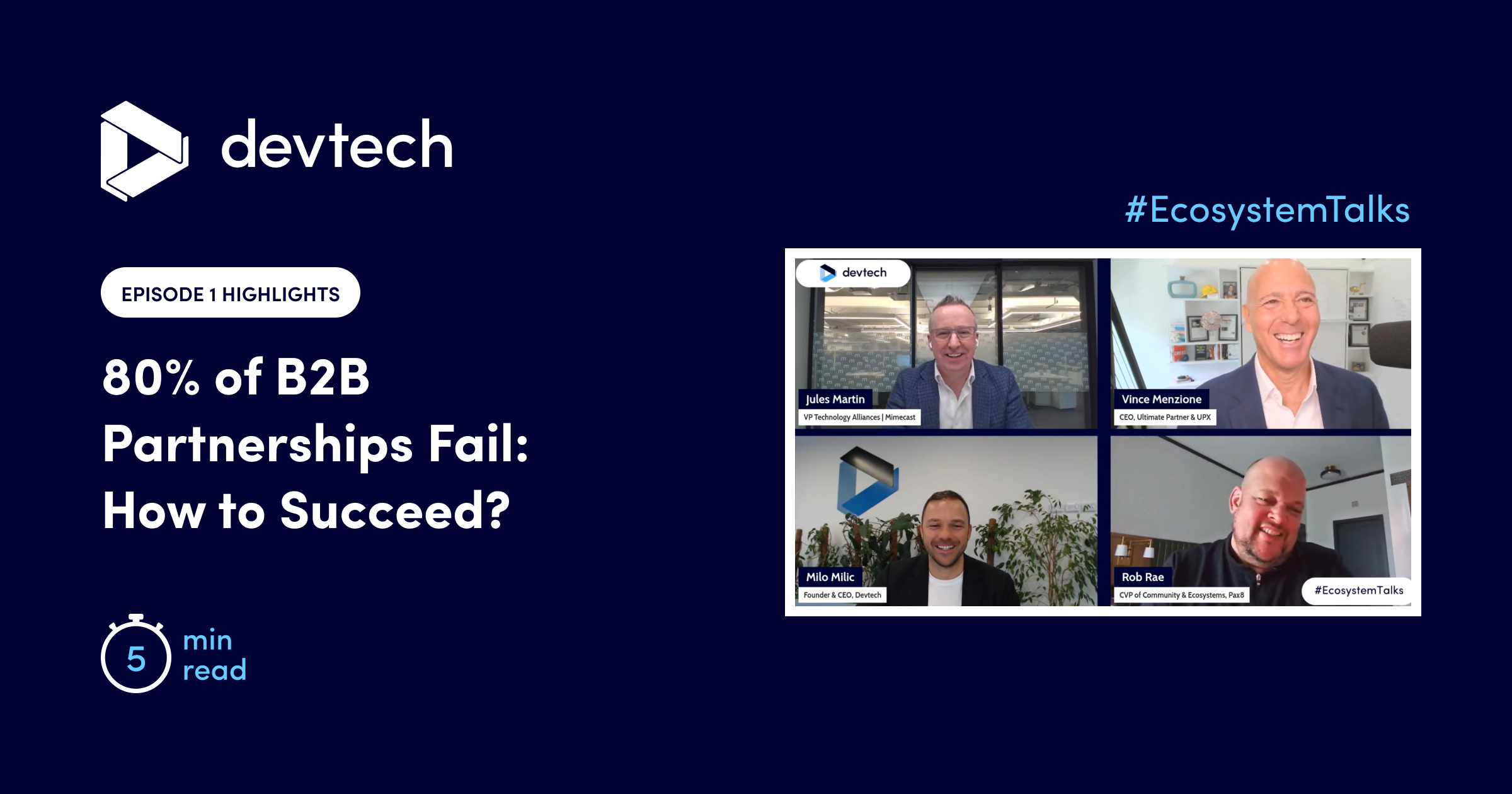With Microsoft signing up 400 new partners every single day, the pace of change in the tech industry is staggering. Digital marketplaces and co-selling strategies are not just trends—they’re redefining how businesses succeed.
Understanding these dynamics is crucial. In “Ecosystem Talks,” industry experts Jay McBain (Canalys), Max Kuzkin (SoftwareONE), and Tim Tsao (Stripe) discussed the key trends and shifts reshaping the future of partnerships and ecosystems.
Transformative Trends: Digitial Marketplaces and Co-Selling
Jay McBain highlighted the significant trends shaping the digital marketplace landscape. He mentioned that there are 250,000 SaaS companies today, spread across 2,262 categories, giving buyers more choices than ever. This abundance of options is driving a shift towards subscription and consumption models, with marketplaces playing a crucial role in facilitating these transactions.
From a seller’s perspective, this shift is pushing companies to rethink their go-to-market strategies and explore new ways to reach customers, such as co-selling with partners.
Building on this, Tim Tsao shared valuable insights into Stripe’s co-selling strategies, which illustrate how companies are navigating this evolving marketplace landscape. He highlighted two main types of partners that Stripe works with:
- The first type is traditional systems integrators, which can range from large firms to smaller regional development shops. These partners focus on gaining access to deals, engaging in pricing discussions, speeding up deal reviews, and securing legal support, rather than seeking direct incentives.
- The second type consists of SaaS platform companies, with Stripe partnering with 13,000 such firms, including giants like Shopify and Spotify. These partners often engage in revenue-sharing and broader go-to-market strategies. They face unique challenges such as crossing international borders, managing payment risks, and handling tax considerations.
Strategic Shifts in Partnering Ecosystems
McBain also discussed the evolving role of ecosystems in 2024. Traditional linear distribution models are being replaced by more complex ecosystems where the value of partnerships extends beyond mere transactions.
In the past, partners played a crucial role in the resale process, earning margins for managing transactions. However, with marketplaces now handling transactions for a fraction of the cost, the real value lies in the services partners provide before, during, and after the sale.
Marketplaces like AWS have demonstrated the immense potential of this model, with companies like CrowdStrike, Splunk, Palo Alto Networks and Snowflake generating over a billion dollars in revenue through marketplace transactions.
This shift underscores the importance of ecosystems in driving the economics of partnering, with services multiplying the value of every dollar of software sold.
The Longtail Marketplace and Platform Gravity
Jay McBain offered a compelling perspective on the platform economy, emphasizing the “sense of gravity” that successful platforms create. He explained that platforms like AWS, Microsoft, and Google are not merely convincing partners to join—they’re attracting them due to the overwhelming demand from customers.
McBain underscored the importance of the longtail in marketplaces. He explained that the success of a marketplace hinges on its ability to cater to a wide array of needs, ensuring that all layers of a product stack are available to buyers. This longtail approach is critical, especially as younger buyers expect a seamless and comprehensive marketplace experience. The ability to provide everything from core solutions to niche products in one place is what makes these platforms indispensable, and it’s why only a few marketplaces will dominate the market.
Conclusion
According to IDC, by 2025, 75% of businesses will rely on digital platforms and ecosystems to enter new markets. As Jay McBain pointed out, the longtail marketplace is crucial—only a few will dominate, and those who adapt quickly will thrive.
In this new era, success isn’t just about what you sell; it’s about who you partner with and how you fit into the broader ecosystem.
